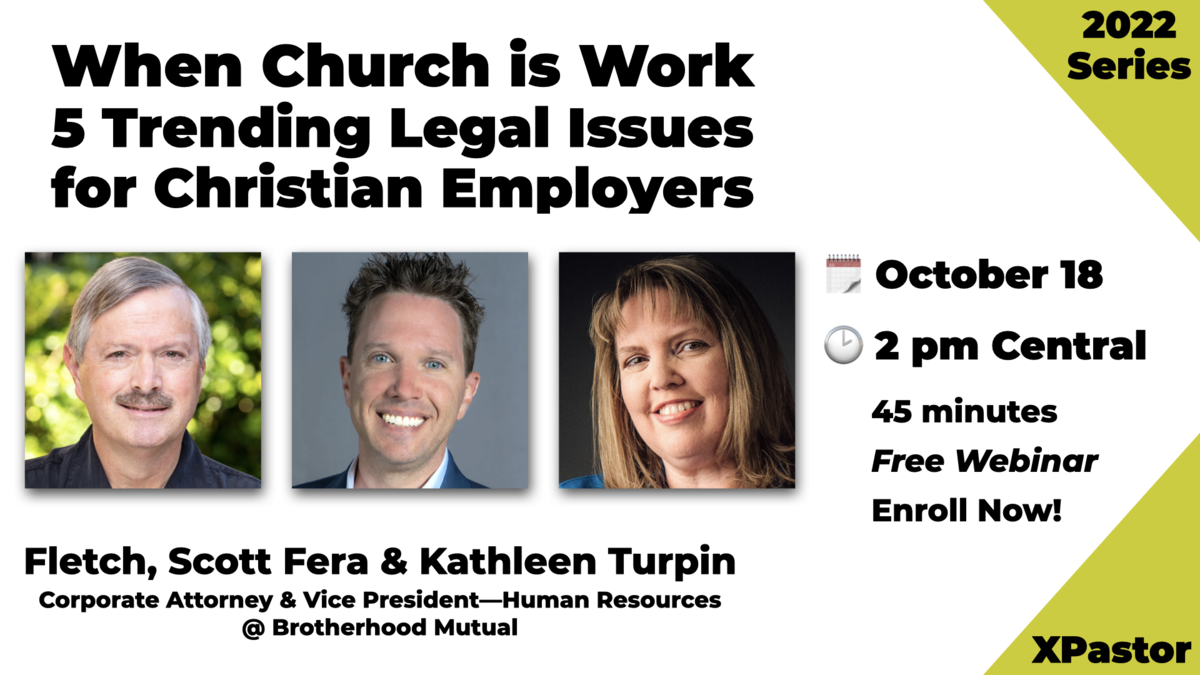In 2012, five employees at Victory Christian Church in Tulsa, Oklahoma were arrested for a two-week delay in notifying authorities of sexual abuse allegations. Read with care to prevent such from happening in your church.
Brief Facts
Chris Denman and Israel Castillo, both members of Victory Christian Church (VCC), were both hired as janitors in the same department. In August, Castillo allegedly raped a 13-year-old girl at the church during one of the services. Denman allegedly propositioned a 15-year-old girl; asking her to send nude photos to him and sending her lewd messages on Facebook.
According to court records, Denman, 20, is now jailed on charges of raping the 13-year-old girl. Castillo, 23, is charged with making a lewd or indecent proposal to a child and using a computer to facilitate a sex crime.
In addition, five members of the VCC staff were arrested and charged with failing to report Castillo and Denman’s behavior to Oklahoma law enforcement in a timely manner.
A civil lawsuit has been filed against Victory Christian Church for damages associated with the alleged sexual behavior of Denman and Castillo, and “cover-up” by VCC staff.
Timeline
August 13, 2012. The alleged rape occurred. Youth Ministry staff members were notified by the 13-year-old about the alleged rape immediately thereafter. Over the ensuing two weeks, other VCC staff members were notified of the rape allegation involving Denman, as well as Castillo’s alleged proposition of the 15-year-old.
August 24, 2012. Denman and Castillo were both fired by Victory Christian Church.
August 27, 2012. The first attempt to contact law enforcement by VCC staff occurs. The senior pastor leaves a message with a Tulsa detective.
August 30, 2012. A VCC staff member actually speaks with a member of law enforcement.
September 17, 2012. Five VCC staff members are arrested and criminally charged with failure-to-report sexual abuse under Oklahoma abuse reporting statutes. VCC staff members arrested include Paul Willemstein, 32, associate youth pastor; Anna George, 24, high school outreach program director; Harold Frank Sullivan, 73, VCC’s human resources director; Charica Dene Daugherty, 27, assistant senior high youth pastor, and John Samuel Daugherty, 28, senior high youth pastor.
Reporting Statutes
Five VCC staff members were charged under Oklahoma Statute §30-4-903 (misdemeanor offenses). Every state in the union has law mandating the report of sexual abuse, physical abuse and neglect—and the suspicions thereof. Reporting statutes often designate particular people or employment positions who must report (mandatory reporters) and those who may report. State reporting statutes commonly identify the time period within which a report must be made, the form of the report, and to whom the report must be made.
In 2009, Oklahoma tightened its law regarding mandatory reporting of child abuse. From designating teachers, doctors and other professionals to report suspected abuse, the law was broadened to include every adult citizen.
Similarly, Texas’ reporting statute clearly establishes that every adult is a mandatory reporter—offering no clergy or attorney-client privilege related to sexual abuse, physical abuse or neglect of a child.
No state reporting statute requires that an organization “investigate” a matter before reporting. In fact, criminal authorities often discourage internal investigations by organizations; they are to simply report and allow trained professionals to investigate.
Though state reporting statutes have been on the books for years, prosecutions for failure-to-report are rare. (c.f. Gateway Baptist Church, Loveland, Colorado)
In November 2011, the drama surrounding Penn State and Jerry Sandusky began to unfold. In the course of that drama, two Penn State University officials were arrested and prosecuted for perjury and failure-to-report sexual abuse, as required by Pennsylvania law. These officials included former Penn State Athletic Director, Tim Curley, and former Vice President for Finance and Business, Gary Schultz.
Though Penn State was not the first to see officials criminally charged for failure-to-report sexual abuse, Penn State charges were so notorious that all organizational leaders were put on notice that law enforcement can and will prosecute leaders or employees who fail to report.
Changing Culture
Americans are angry about the widespread victimization of children, and this anger extends to entities that receive information and fail to “do the right thing at the right time.” Legislatures are listening to angry constituents, expanding reporting responsibilities and limiting forms of protected communication (as did the Oklahoma legislature in 2009). Legislatures are introducing legislation to expand liability and statutes of limitation.
Why is this Significant?
Church and organizational leaders must understand the critical importance of correctly handling an allegation of child sexual abuse. Two obvious reasons are clear from the Penn State and VCC situations—criminal charges and loss of employment.
Other impacts reach beyond the individuals accused of mishandling information.
Denial of Insurance Coverage
Allegations of sexual abuse in an organization will often result in civil litigation, similar to Penn State and VCC. Failure to report can result in the denial of insurance coverage related to civil litigation.
Each policy providing coverage for negligence and general liability has a notification clause requiring each insured (organization) to immediately notify the insurer (carrier) if the insured becomes aware of facts that could give rise to a claim. Any insured failing to do so risks denial of coverage.
The “denial of coverage” process has begun for Penn State. PSU’s insurance carrier filed a lawsuit against the university seeking a declaratory judgment releasing the insurance carrier from any obligation to defend or indemnify Penn State in connection with claims made in civil lawsuits—based on PSU’s failure to report facts giving rise to a claim within a reasonable period of time. Generally, if an organization does not report an allegation to law enforcement, it does not report the allegation to its insurance agent or carrier.
Allegations of Cover Up
The failure-to-report charges faced by five VCC employees (members of youth ministry and HR staff) are misdemeanor charges. For these five individuals, the most significant direct impact from the criminal charges will be limited to fines. The broader impact, however, is the public perception of a cover-up—which makes a jury angry and unpredictable. Further, no organization (least of all a church) wants a reputation of being unsafe and unconcerned about children.
Does Your Staff Know the Law … Now?
Given the significance of the issues and ramifications involved, organizational leaders must understand the reporting responsibilities in place for its state(s) of operation. Unlike many statutory provisions, state reporting responsibilities are easily accessible through a simple internet search (i.e. www.childwelfare.gov).
It is also important that organizational leaders understand the reporting requirements in advance of an allegation. Given the time elements for reporting, organizational staff must act quickly. Law enforcement (and juries) is unsympathetic to claims of information delays in large organizations—not forgetting that a child may still be in harm’s way.
Finally, it is important that all organizational staff and volunteers be made familiar with the state reporting requirements and the organization’s internal procedures for handling allegations of abuse and neglect. Many allegations of abuse are initially reported to lower-level staff members or employees that are in direct contact with children. Unlike Penn State and VCC, these outcries oftentimes never rise to the attention of upper leadership. Because an organization can be held responsible for the failures of its staff members and volunteers, it is important that everyone who wears the organization’s nametag be trained to understand how to properly handle information regarding the abuse or neglect of a child.











